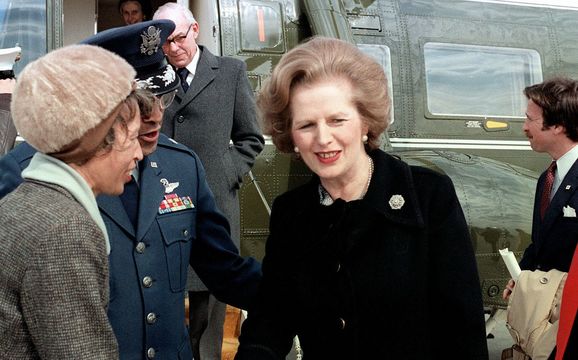|
In 1994, Margaret Thatcher spoke about her memoir The Downing Street Years to a packed ballroom in Toronto. I was in the audience, along with my Gilbey Canada executive committee colleagues.
Quick.... when you hear Margaret Thatcher's name, what comes to mind? Maybe who she was. Maybe what she did. She has a long list of accomplishments. What is interesting is that she intentionally took a path of memorializing just a few of them. That morning in Toronto, Mrs. Thatcher framed her remarks by mentioning the four great issues facing the UK when she took over as Prime Minister in 1979: restricting the power of trade unions, controlling inflation, civil service reform and confronting the unrest in Northern Ireland. I leaned over to my boss and whispered, “Wouldn’t it be great if our business only had four problems?” That speech is something I often return to, almost 30 years after I heard it. In a wildly chaotic time with responsibility over 55 million souls, she was able to simplify her situation to a handful of problems to address. Let’s be clear. Thatcher knew there were more winds buffeting her than these four things. But she was able to close out the noise of other exigencies and focus on the critical few. I’ve heard this echoed in different ways over the years. At its heart, strategy is about sacrifice. Becoming more senior in a role means an increase in scope, scale and complexity. It means leaving important matters to others, so you can focus on yet more important matters. Here is a useful discipline to apply. What should be the epitaph for your job? When you leave your position, what will your tombstone say? What is the single accomplishment you will be known for? Yes, Thatcher had four objectives, but she was running a country, after all. I will make it easier for you. You don’t have to be known for only one thing for your entire career, like inventing the lightbulb or writing the national anthem or electrifying the auto industry or bringing design to technology. No. Just come up with one thing for this job. Maybe it’s integrating an acquisition on time and on budget for the first time in your company’s history. Or bringing forward a digital transformation that changes how your work gets done. What does that say about where you spend your time and effort? And all the other things in your purview? How much effort goes into the things you won't be remembered for? I will make it easier still. Once you’ve accomplished that one thing you’ll be known for, come up with something better. So, more than one priority, just not at the same time. Because, if you don’t try to top your own record, you’re on a sad glide path. Most of us don’t stay in the same role for forty years. Imagine having a career with 10-20 roles, each with a single significant accomplishment. What a great resume that would be! I return to Margaret Thatcher to close. In her Downing Street tenure from 1979 to 1990, she became known for more than her four stated priorities. She conquered some of the original goals. Other times, new situations rose to the top. She led the UK to victory in the Falklands. She was an axis point along with Ronald Reagan for transatlantic conservatism. She helped steel George H.W. Bush’s spine in the Gulf War. And she remains Britain’s only female Prime Minister. But the lesson we can all take from this remarkable individual is her remarkable focus, a focus we can try to emulate.
1 Comment
|
AuthorExecutive Springboard President Steve Moss shares learning from years as an executive and a mentor. Archives
July 2024
Categories |


 RSS Feed
RSS Feed